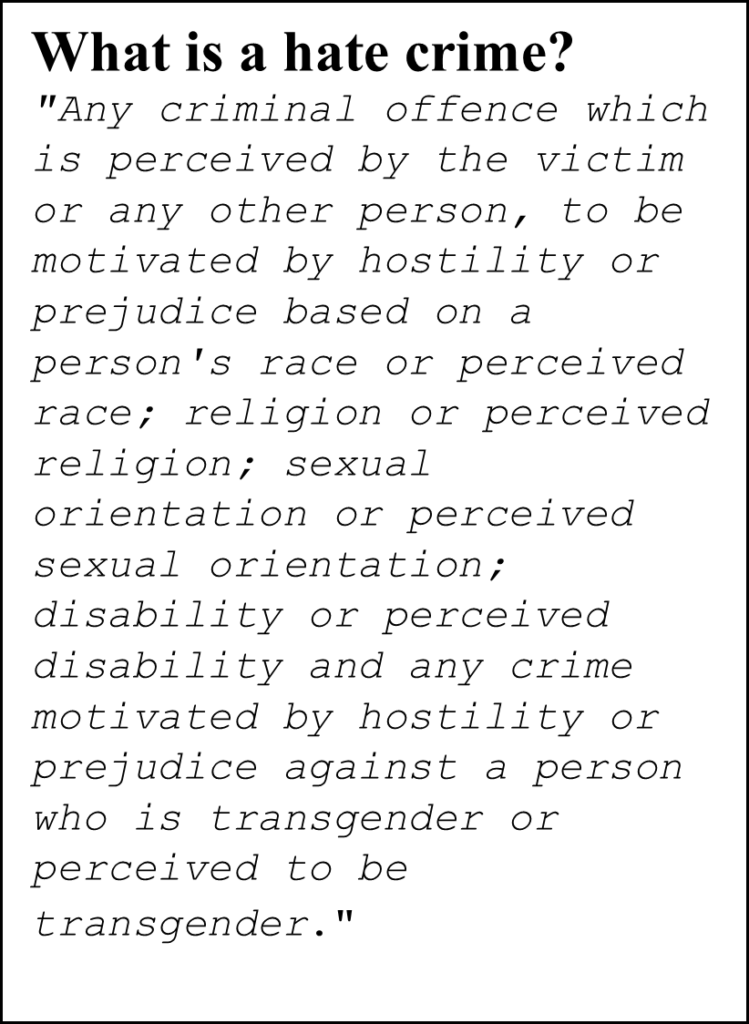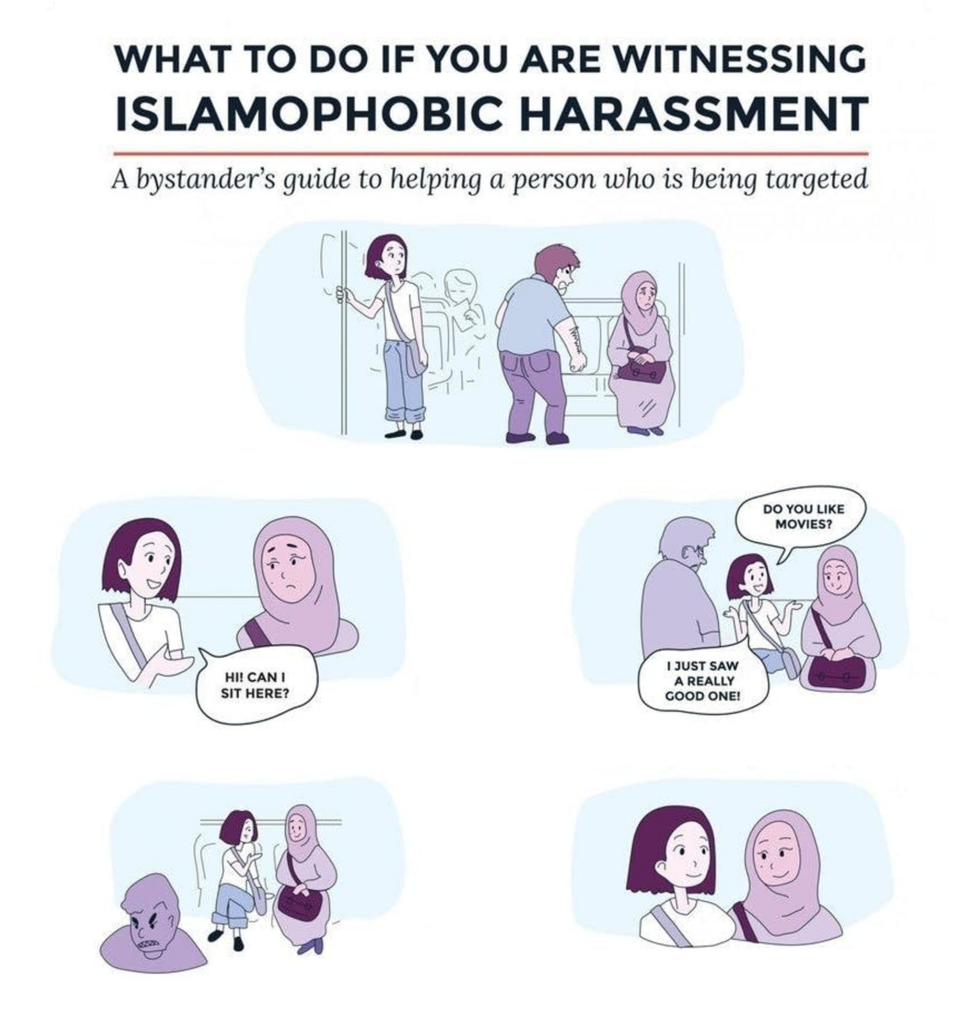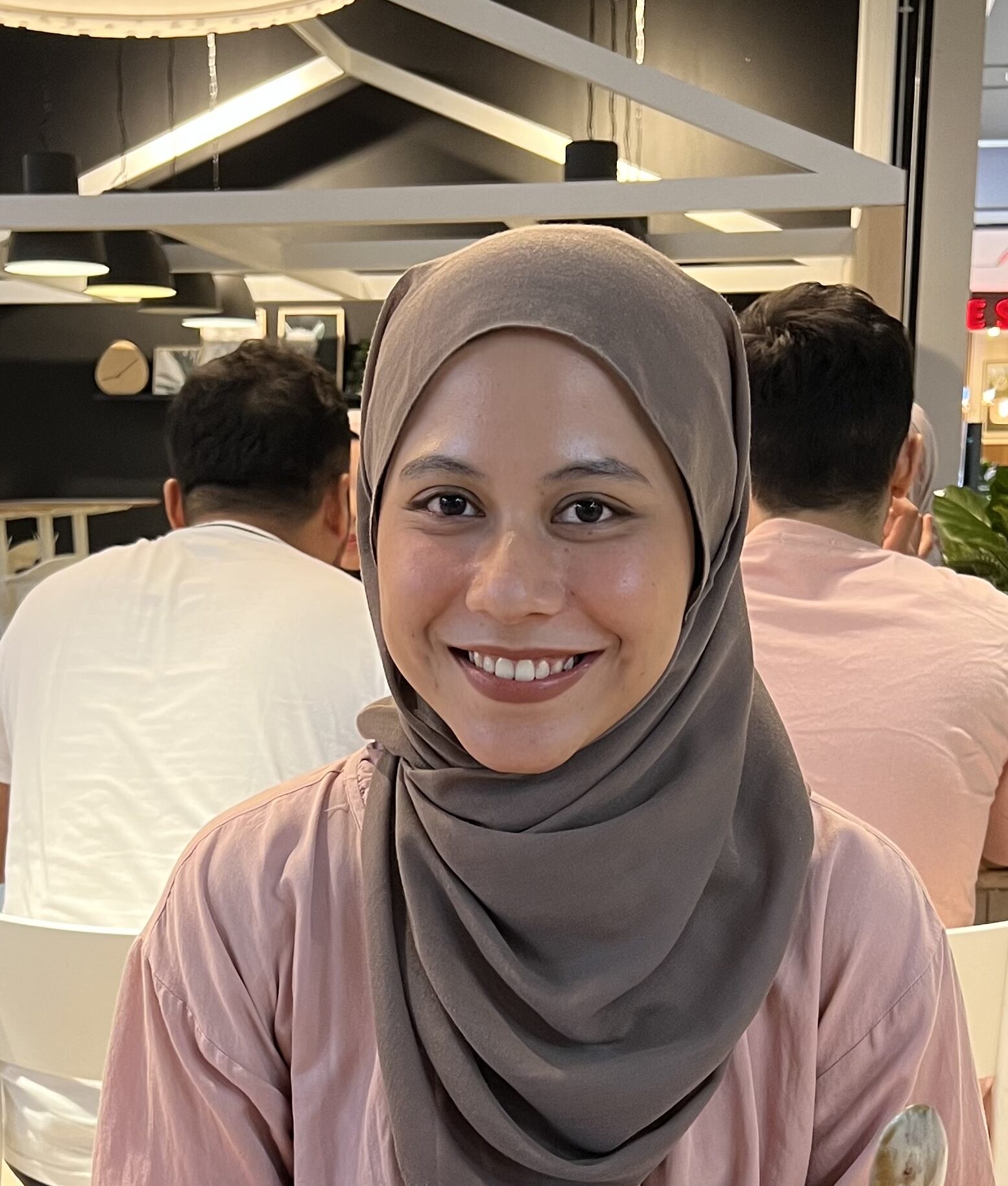In 2021, the United Nations General Secretary designated 15th March as the International Day to Combat Islamophobia. It calls for a global dialogue on the promotion of a culture of tolerance and peace, based on respect for human rights and for the diversity of religions and belief. PHSI PGR students, Arwa Katab and Nik Nuraisyah Nik Nasir, share their own experiences and reflections of this cause.

In this first section, Arwa Katab reflects on her own experiences of Islamophobia and what makes her feel supported, including support from Newcastle University Islamic Society (Newcastle ISOC).
What is Islamophobia?
Islamophobia is a fear, prejudice and hatred of Muslims that leads to provocation, hostility and intolerance by means of threatening, harassment, abuse, incitement and intimidation of Muslims and non-Muslims, both in the online and offline world. Motivated by institutional, ideological, political and religious hostility that transcends into structural and cultural racism, it targets the symbols and markers of being a Muslim.
-United Nations

The Home Office Report of hate crimes reported that most victims of religious hate crimes in England and Wales were Muslims. (Of the 8,307 were religious hate crimes reported between 2021-2022; 42 percent of offences were against Muslims.)
In some cases, hate crime against Muslims can be very evident, for example, in some places outside the UK, Muslim women who choose to cover their hair with a hijab, would not be allowed into educational institutes; this would mean that I, and my Muslims colleagues, would be stripped away from the opportunity to complete our PhD, purely because we choose to look visibly Muslim.
In other cases, hate crime can be less obvious to spot through job rejections, being ignored and being treated passive aggressively.
Growing up visibly Muslim, experiencing hate crime was not a foreign concept to me; I remember as a child or young teenager, being discriminated against and verbally abused by adults, because I chose to wear clothing that covered most of my skin, and hair. My situation was not an anomaly; this was the norm (and still is) for many of my Muslim friends and family, and Muslims around the world.
What are the impacts of Islamophobia?
Worryingly, the experience of hate crime runs deep. Through my background as a child researcher interested in children’s health and wellbeing (currently working towards my PhD), I wanted to start with some facts specific to children’s experiences:
Children are only starting to develop their identity. One of their main concerns is around ‘fitting in’ with their peers. It’s not surprising to learn that having a big part of your identity tarnished and abused as a child can be associated with a greater likelihood of poor mental health, especially as children begin to internalise these negative stereotypes associated with being a Muslim.
In my case, experiencing hate crime happened in a variety of settings, including schools, public places and transport. This meant that being vigilant of my surroundings was constant habit. For some Muslims, this behaviour can eventually manifest itself into social anxiety, agoraphobia and/or depression. It also meant that trusting adults took time; children need to feel safe enough to disclose any troubles to a trustworthy adult. For some young Muslims experiencing hate crime in school, the negative affects could spill over and affect their academic work.
For adults, in terms of trusting the public, this could also mean that seeking support when needed, for example visiting their local GP, is put on hold in fear of being hate crime-d on the way there, are at the location. In terms of research participation, it therefore unsurprising to see the association between lower rates of Muslims and those of ethnic minority taking part in our research studies.
What makes things easier?
It can be scary to intervene when someone is experiencing a hate crime, but offering support after the incident can make a big difference (see Figure 1).


Being at Newcastle university, there ways in which I feel supported as a Muslim, through access to prayer rooms, availability of halal food and general knowledge from colleagues about Islam.

Recently, the Islamic Society at Newcastle University (ISOC) held its weekly ‘Discover Islam Week’ (starting every year in March), where Muslim students tackle any misconceptions surrounding Islam, and give other students and staff the opportunity to ask questions and increase their knowledge. These events have always been popular, with snippets of our cultural food and art (calligraphy and henna) being included.
It’s events like these that help dispel any negative beliefs around Islam and display the true character of a Muslim who builds their identity around charity, peace and kindness
International student and Islamophobia

Nik Nuraisyah Nik Nasir
In the next section of this blog, international PhD student Nik Nuraisyah Nik Nasir talks about her experience of moving out of her Muslim country to the UK to study, and how Islamophobia impacted her.
Growing up in a Muslim country, the thoughts of Islamophobia, or even the meaning behind it was never a concern. It felt safe and accepted to practice your religious belief anywhere you like. I did not feel different, nor unusual to put on the hijab and covered the hair and most parts of my body (where I chose to do so). Being discriminated over those choices – had never crossed my mind. It made no sense to me that in some countries there could be a threat to safety because of your choice of religion.
Until I went out of my ‘comfort zone’ and travelled to a non-Muslim country – where the truth behind this type of discrimination do prevail. As sad as it may sounds – I have had my fair share of experiences and also friends and families who went to further their education abroad (to a non-Muslim country) who encountered some types of discrimination and hate towards them as a Muslim student.
Due to these past experiences, I could not help but feel rather insecure, vulnerable, and unsafe whenever I walked through the streets or in a public transport. Coming to Newcastle with my child, the anxieties surround being a Muslim and international student grew without realising. All the ‘what ifs’ that could happen could consume me. I want to feel more ‘inclusive’ and ‘fit in’ so that we blended well – and not just for myself, but above all, for my child. Putting the ‘brave mask’ on is almost like the daily idea that I need to do to not look weak and ‘targeted’ to being verbally and physically abused because of my religion but also because we look and talk ‘differently’ than the locals. Religious and racial slurs were not unusual for these past years, and it should not be.
Choosing to pursue my PhD in Newcastle University was one of the conscious choices I made based on how safe, open and acceptance were the locals towards Muslim community. Fear of being discriminated, rejected, or ignored on any occasions based on my religion was one of my major concerns. Any decisions I made, it made me feel conscious of being judged not just as an international student, but also as a Muslim. Thankfully I could have my thoughts on rest as my colleagues and peers in the university are very supportive and never have I feel dejected and discriminated by being both a Muslim and an international student. Access to prayer rooms and serving options of halal foods to us Muslim colleagues are the primary instances of the general support and acknowledgement of the university towards our beliefs.
Being far away from home and my family, I almost feel like seeking a refuge and protection from the Muslims brother and sisters is compelling to make me feel more accepted and secured being in a foreign land. The sense of security by being in this close knitted community can be expressed in a simple gesture such as exchanging eye contacts and smiles and even better by giving “salam” to each other would make my day (Salam is a Muslim greeting that means peace be with you)– knowing that we are indeed brothers and sisters no matter where we are or how we look like, but we do bonded/binded by our beautiful religion. I am reminded on an unfortunate incident that has happened to me recently in Newcastle, where afterwards, a kind man came up to me and said “You are Muslim right? And so am I. I got you” – in this very moment I am again reminded by the unity of being a minority will make a big impact on an individual’s wellbeing no matter where you are in the world.
If you would like to know more about how to combat Islamophobia and the support available to Muslim colleagues and students, please visit the following:
Newcastle Univeristy Islamic Society- https://www.newcastleisoc.com/
Chaplaincy – https://www.ncl.ac.uk/chaplaincy/
Faith facilities– https://www.ncl.ac.uk/chaplaincy/faith-values/facilities/